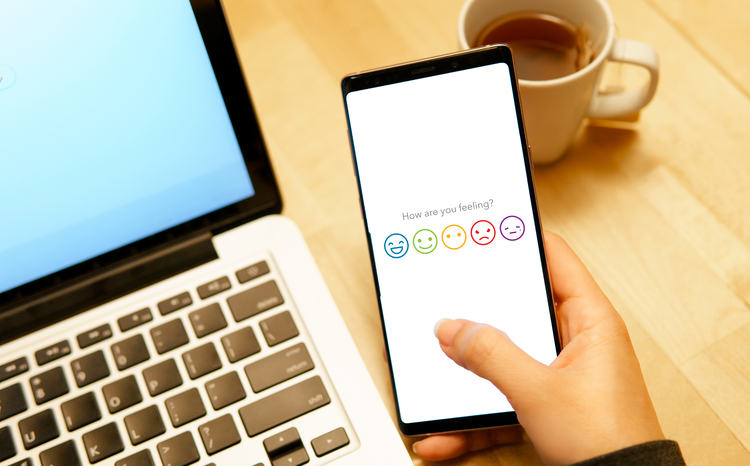Pier review
- 25 February 2014

Shining a light on a GP’s clinical decision making can be a sensitive business. Doing it in a way that is embraced by GPs is even trickier.
The success of a Brighton healthcare team in doing just that led to it winning the business intelligence category of the EHI Awards 2013 in association with CGI.
Brighton and Hove Integrated Care Service scooped the award for its Referral Learning Tool, developed in-house to help its GPs understand and reflect on variation in their referral practices.
Dr Jonathan Serjeant, clinical director of the service, says clinical commissioners have traditionally used Secondary Uses Service data to examine referral patterns.
However, he says SUS does not deliver the right information for GPs to analyse their referrals. It is based on what happens once a patient is in secondary care, rather than on the initial reason for referral, while data is gathered at a practice level, rather than on an individual GP basis.
He adds: “When you go to discuss patterns of referrals with hospital activity statistics, GPs will immediately challenge the data and dismiss it.”
Core business
Brighton and Hove Integrated Care Service was in a good position to come up with something better because its core task is to manage GP referrals.
The organisation was set up in 2008 as a not-for-profit social enterprise, owned by GPs in Brighton and Hove, handling referrals from all 47 practices in the area.
It also runs a series of new care pathways involving community based services, such as a dermatology service and a musculoskeletal assessment and treatment service.
All referrals, with a few exceptions such as maternity and two week waits, come into the service and are peer reviewed by a team of more than 20 experienced GPs.
From there, around 69% or the 58,000 annual referrals are sent on to providers via Choose and Book, 29% are directed to a non-consultant led services, and 10% are redirected to a different speciality.
Only 3% are returned to practices for more information and Dr Sarjeant says a key part of the service is that if a GP wants a patient to see a specialist they always have the last say.
Understanding the data
The team was passionate about supporting GPs to reflect on their referral practices in elective care. As in most areas of the UK, there were wide variations in referral patterns between individual practices and individual GPs.
These variations could not be wholly accounted for by factors such as patient demographics, access to private care, or practice location and size. A paper drawn up the team, ‘Understanding Referral Practice in Brighton and Hove’ , sought to examine some of these issues.
Dr Sarjeant adds: “This work produced by our clinical leads identified that very little attention has been paid to the underlying causes of variation in referral behaviour and that accurate data would be needed to help doctors identify and possibly modify their own practice.”
Brighton and Hove Integrated Care Service also recognised that, after a year of operation, it had an invaluable set of reliable condition and GP specific data on almost all secondary care referrals in the city, as well as community referrals to its gateway services.
It wanted to use that data to help GPs look at their referrals and decided in 2009 to build a tool that would present that data in an accessible form to GPs.
The projects aims were to use data that was already available, to provide analysis at individual GP level, to maintain anonymity between GPs, and to be flexible in approach to respond to the needs of its users.
Encouraging comparison
The resulting system was built in-house using Microsoft Access and provides data for GPs that can be analysed by practice, individual doctor, specialty and a range of conditions within each specialty.
The Referral Learning Tool also provides comparators against other GPs and practices in Brighton and Hove.
A further innovation is that the data is coupled with GP session data to provide a comparator of referrals per session, which the team decided was the best way of measuring referral activity between individual GPs who might work very different numbers of sessions.
The tool is now in its fourth year of development and use and has been used by all 47 practices in Brighton and Hove.
The data is presented graphically using a number of different views and practices can drill down or look at specific areas of interest. Practices can also make requests for specific data if they want to reflect on individual referral decisions.
Dr Sarjeant says the data is presented to GPs surgeries or they use it interactively. He adds: “It is important to emphasise that the data is a means to support a reflective dialog and is not a form of performance management.”
Better referrals save money
Dr Sarjeant says the tool has had positive feedback from practices and the team believes it has contributed to changes in behaviour in the city, improving the quality and appropriateness of referrals as well as the number of referrals made.
As a health economy, Brighton and Hove has saved £3.23m in the last four years by patients being seen in a non-acute setting and referral rates have fallen by 2% against a regional rise of 2-6% and a national rise of 4-5%.
The teams believe the tool has the potential to be adopted around the UK, following the successful adoption of its referral management system by Croydon, which is now in its second year of operation.
Like almost all healthcare IT projects Dr Sarjeant says “absolute clinical engagement” was a vital element in the project.
Combining that with accurate and reliable data meant that Brighton and Hove Integrated Care Service was able to develop a tool that hit the right note with GPs – and ultimately the whole health economy.

If you know of a trust, team or company that is taking an innovative approach to healthcare IT, why not enter the EHI Awards 2014?
This year’s awards, which will be presented at a black tie dinner in October, have more categories than ever before. There are 14 categories to enter, the details of which can be found on the dedicated awards website. Entries must be received by 9 May.
For information about sponsorship opportunities for the awards or to book tickets, contact EHI’s events team on 0207 785 6924.




